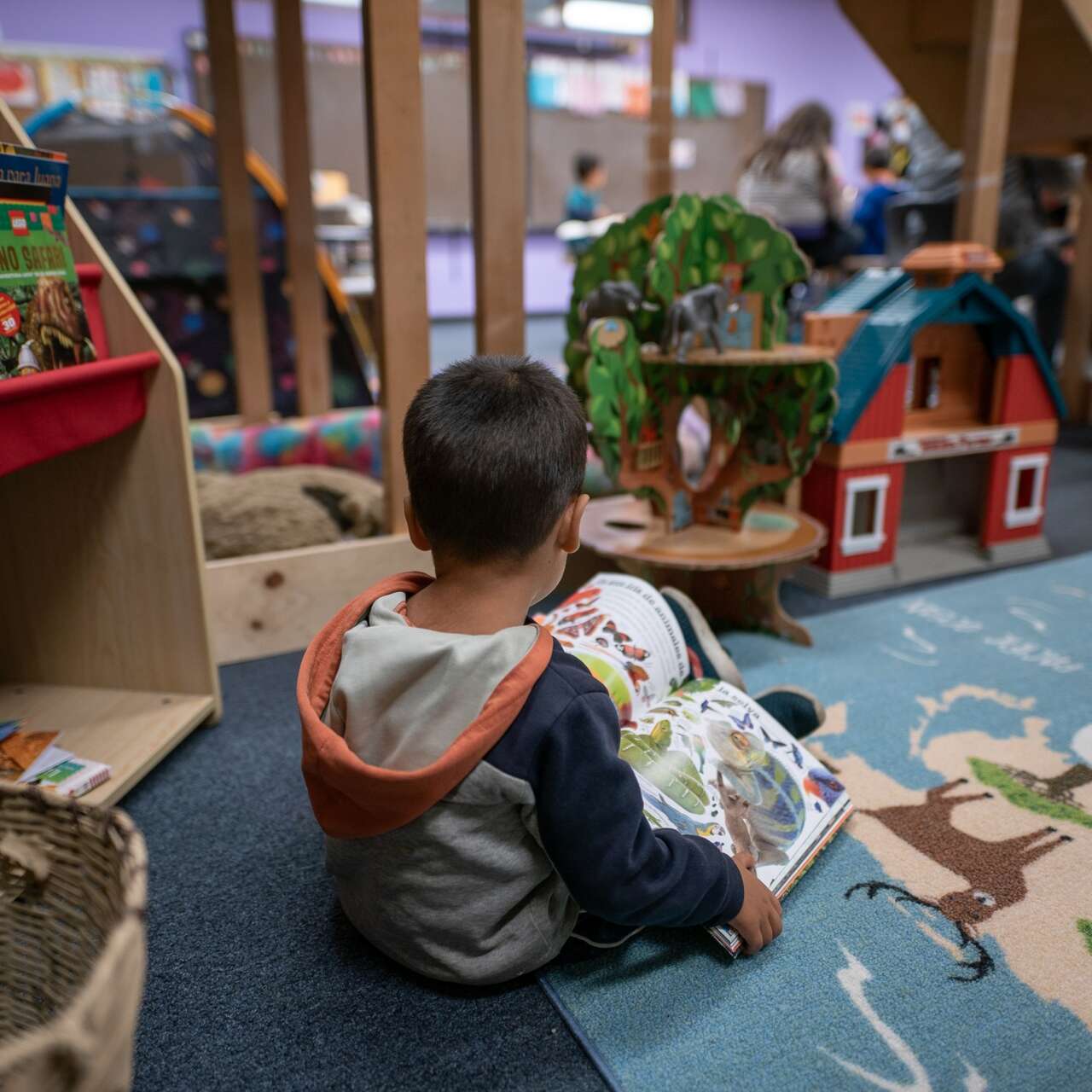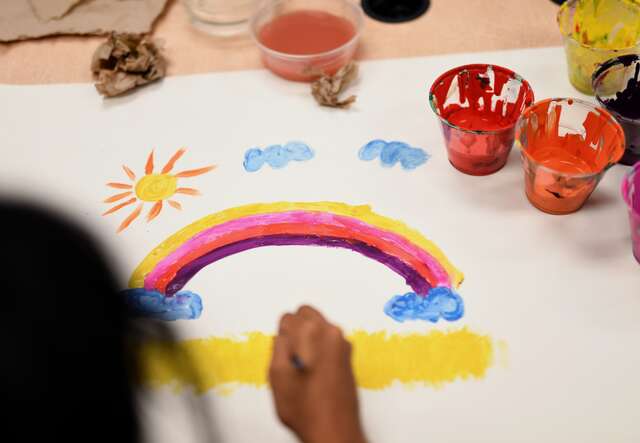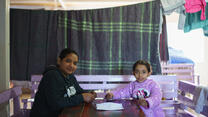
Every child deserves safety, love, and the chance to just be a child. Yet, for thousands of unaccompanied children fleeing violence, abuse, and unimaginable hardships, the journey to safety is anything but secure. Children traveling alone to the United States to find safety are some of the most vulnerable at the border. Picture a six-year-old, scared and alone, crossing a border in search of hope—only to face even more dangers upon arrival.
The International Rescue Committee (IRC) has helped these children by giving them protection, legal help, and support so they can live safely. But now, changes in rules and funding cuts put these important services at risk, leaving many children in danger.
The threat of losing legal representation programs
Securing legal protection is the only way for unaccompanied children to stay safely in the U.S. Many of these children arrive at the border after fleeing terrible hardships such as abuse, trafficking, and gang violence. Their journey to the U.S. is often fraught with trauma, making them vulnerable to harm or exploitation once they arrive, especially without a parent or guardian to protect them.
In immigration courts, children are held to the same legal standards as adults, expected to recount the horrors they’ve faced in court while an ICE prosecutor argues for their deportation. Without legal representation, their chances of obtaining safety and stability are slim. In fact, children with lawyers are five times more likely to gain protection than those without representation.
Recognizing these risks, bipartisan legislation like the Trafficking Victims Protection Reauthorization Act (TVPRA) was established to safeguard these children. Special protections are in place to ensure children seeking asylum are treated fairly and not left to navigate the legal system alone. However, these protections are not always guaranteed, and recent changes could leave many children at risk of deportation back to dangerous conditions.

Since 2019, the IRC has worked to address this critical need by providing essential services to unaccompanied children in the U.S. As one of only two national providers of legal aid for these children, we assist those facing language barriers, complex cases, or living in remote areas. Last year, we delivered legal services to 3,890 children, including full representation for over 500. Additionally, through our Signpost platform, we reached nearly 20,000 children, and we trained over 500 providers in trauma-informed play to help children process their experiences.
The essential support systems at risk
Beyond legal aid, unaccompanied children need a range of services to ensure their safety and well-being. The IRC’s trained clinical child protection team works with pregnant and parenting teens, LGBTQ+ youth who have faced persecution, and children with severe medical conditions such as cancer, HIV, kidney failure, and heart disease. We provide support in rural and hard-to-reach areas where no other agencies exist, ensuring that children and families struggling to find services receive critical aid.
With continued funding, the IRC can:
Ensure children know their rights and can access services: Our award-winning Signpost program runs ImportaMi, a virtual platform for unaccompanied children that has reached over 60,000 people and directly supported nearly 6,000 children. Since January, support requests have nearly doubled, with over 350 children seeking help through ImportaMi each month.
Provide case management to unaccompanied children: This includes ensuring school enrollment, access to medical care, referrals to immigration attorneys, and connection to community services. Caseworkers also help families develop emergency separation plans in case of detainment or deportation.
Deliver legal services: Most unaccompanied children qualify for legal protection but cannot seek it without legal assistance. Our specialized children’s legal teams advocate in state courts and before federal adjudicators, using trauma-informed techniques to help children share their experiences. For example, six-year-old Jaime struggled to communicate his story until our innovative play-based approach helped him recount his history of abuse and persecution. With the IRC’s support, he won his case and is now able to live safely in the U.S. with his family.
Provide emergency assistance: Many unaccompanied children are at risk of abuse, exploitation, and trafficking. The IRC provides financial assistance for basic needs, medical care, shelter, clothing, and medicine to ensure their safety.
Expand play-based technical assistance for providers: The IRC’s Play Program improves legal services by integrating trauma-informed play techniques, developed in collaboration with play experts, mental health professionals, and puppeteers. Our specialists have trained over 500 legal service providers in these methods, benefiting thousands of unaccompanied children.
Conduct protection monitoring: We collect data on key indicators of child well-being—such as shelter, food security, medical access, and education—to identify trends and inform protection efforts. Our findings are shared with stakeholders, including government officials and advocacy organizations, to drive policy change.

A call to action: Protecting unaccompanied children starts with us
At a time when refugees and immigrants in the U.S. face increasing challenges, the IRC is confronting an unprecedented loss of federal funding that threatens our ability to provide critical services to unaccompanied children. Without immediate action, thousands of vulnerable children may be left without legal protection, medical care, or the support they need to integrate into their new communities.
The choice is clear: we must sustain, adapt, and expand these essential services. By restoring funding and advocating for policies that protect unaccompanied children, we can ensure that these young individuals—who have already endured so much—have the opportunity to live safely and with dignity in the U.S.
How you can help
Learn more about how the IRC is helping vulnerable children at Rescue.org, and join us in ensuring unaccompanied children have access to the protection, care, and legal representation they need. Every child deserves safety, dignity, and the chance to just be a child.
You can make a difference by advocating for their rights or supporting programs that provide critical services.



